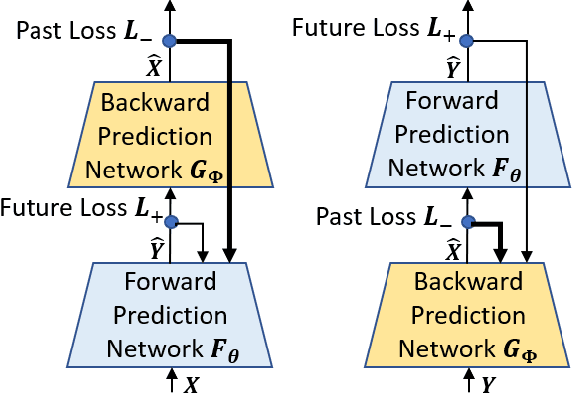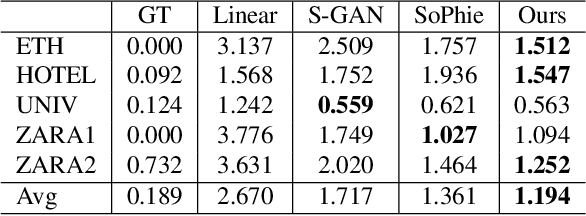Reciprocal Learning Networks for Human Trajectory Prediction
Paper and Code
Apr 09, 2020



We observe that the human trajectory is not only forward predictable, but also backward predictable. Both forward and backward trajectories follow the same social norms and obey the same physical constraints with the only difference in their time directions. Based on this unique property, we develop a new approach, called reciprocal learning, for human trajectory prediction. Two networks, forward and backward prediction networks, are tightly coupled, satisfying the reciprocal constraint, which allows them to be jointly learned. Based on this constraint, we borrow the concept of adversarial attacks of deep neural networks, which iteratively modifies the input of the network to match the given or forced network output, and develop a new method for network prediction, called reciprocal attack for matched prediction. It further improves the prediction accuracy. Our experimental results on benchmark datasets demonstrate that our new method outperforms the state-of-the-art methods for human trajectory prediction.
 Add to Chrome
Add to Chrome Add to Firefox
Add to Firefox Add to Edge
Add to Edge